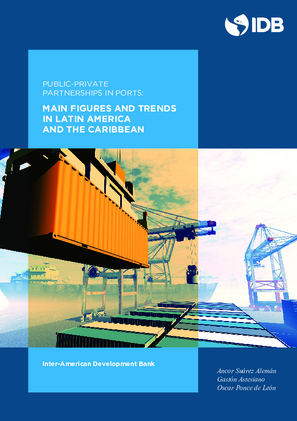Public-Private Partnerships in Ports: Main Figures and Trends in Latin America and the Caribbean
Date
Feb 2020
In the last decades, Public-Private Partnerships (PPP) have become the norm in the port infrastructure context, with a particular emphasis on containerized cargo terminals. This document creates a profile of PPP ports in the region, with a focus on container terminals, to identify main trends in the sector. To develop the profile of PPP ports in the region, data were collected and consolidated at the port terminal level according to the availability for 23 LAC countries. We included terminals or ports of the list published by government agencies for Argentina, Brazil, Colombia, Jamaica, Mexico, Panama, Peru, Dominican Republic and Uruguay; and by specialized private agencies for Chile, Costa Rica, El Salvador, Guatemala, Honduras, and Nicaragua. There is also a sample of terminals from Bahamas, Barbados, Belize, Guyana, Ecuador, Haiti, Suriname, and Trinidad and Tobago5. We consolidated information on the characteristics of port terminals from government entities in charge of planning, regulation, management and operation of port infrastructure, as well as other government entities in charge of PPP process, in addition to public information from the private operators. Information from the World Bank's PPI Database was also included.




